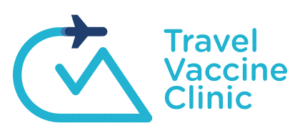The Shortage in Yellow Fever Vaccine
Unfortunately, there is a shortage of the yellow fever vaccine across the world. A shortage of the vaccine can affect those who are in need, that is why it’s important to know where to find a local designated yellow fever center before you travel to affected areas.
The manufacturer of yellow fever vaccine (YF-Vax), Sanofi Pasteur (Swiftwater, PA), has informed CDC that supplies of all preparations of YF-Vax are limited. Unfortunately, ordering restrictions have been implemented. Health care providers cannot place orders for yellow fever vaccine online.
A customer service representative will work with them to determine how many doses can be shipped and which vial sizes to shop. Yellow fever vaccine doses will be prioritized for patients who are traveling to the infected areas.
What is yellow fever?
Yellow fever is a serious disease that is spread to humans by infected mosquitoes. Some of the symptoms appear 3-6 days after infection and include a headache, fever, and vomiting. After a few days, people appear to recover but about 15 Percent will develop more serious symptoms including bleeding, and organ failure. This severe form of yellow fever is fatal in 20 – 50 percent of cases.
There are a few factors to why travelers get vaccinated either because it is required to enter a country or because it is recommended for their safety. These requirements are put in place by certain countries so that they can defend both individual travelers and countries from the risk of spreading the yellow fever virus.
If these requests apply to you before your trip -you will need an International Certificate of Vaccination or Prophylaxis as proof of your vaccination.
The risk of getting the yellow fever is determined by many elements, including:
- Immunization status
- location of travel
- The season
- Duration of exposure
- Occupational
- Recreational activities while traveling
- Local rate of virus transmission at the time of travel
How can people reduce the chance of getting infected with yellow fever virus?
Yellow fever can be prevented by vaccination. The vaccine is a live but less powerful strain of the virus. It is important that travelers prevent mosquito bites when they are traveling to areas like Africa, and South America where the yellow fever virus is transmitted.
- Use insect repellent. When you go outdoors, use an EPA-registered insect repellent such as those containing DEET, picaridin, IR3535, or oil of lemon eucalyptus on exposed skin. Even if your outside for short time it can be long enough to get a mosquito bite.
- Wear protective clothing to prevent mosquito bites. It is important to wear long-sleeves, long pants and socks when outdoors. Mosquitoes can bite through thin clothing. That is why spraying clothes with repellent containing permethrin or another EPA-registered repellent will prevent the chances of contracting yellow fever. It is important to know that mosquito repellents containing permethrin are not approved for application directly to the skin.
- Be aware of peak mosquito hours. The peak biting times for most mosquito is dusk to dawn. Unfortunately, Aedes aegypti, one of the mosquitoes that spreads yellow fever virus, feeds during the daytime. It is crucial to make sure to use repellent and protective clothing, not only during daytime but also in the evening and early morning. Make sure to stay in accommodations with screened or air-conditioned rooms, particularly during peak biting times, will also reduce risk of mosquito bites.
Who should not get yellow fever vaccine?
It is important to know that Infants younger than 6 months of age should not get the vaccine. Also, anyone that suffers from a severe allergy to any part of the vaccine, including eggs, chicken proteins, or gelatin should not get the vaccine. Anyone who has had a severe reaction to a previous dose of yellow fever vaccine should not be vaccinated again.
If you have any of the following conditions, it is crucial to discuss with your doctor if the yellow fever vaccine is safe for consumption
- HIV/AIDS or other diseases that affects the immune system
- Weakened immune system as a result of cancer or other medical conditions, transplant, or drug treatment (such as steroids, chemotherapy, or others that affect immune function)
- Thymus disorder
- Adults 60 years of age and older
- Infants 6 – 8 months of age
- Pregnant women and nursing mothers
What can I do?
- Get immunized! Consult with your local travel health care provider about vaccines before you travel. It is important to visit a designated yellow fever center.
Content source:
- Public health agency of Canada



